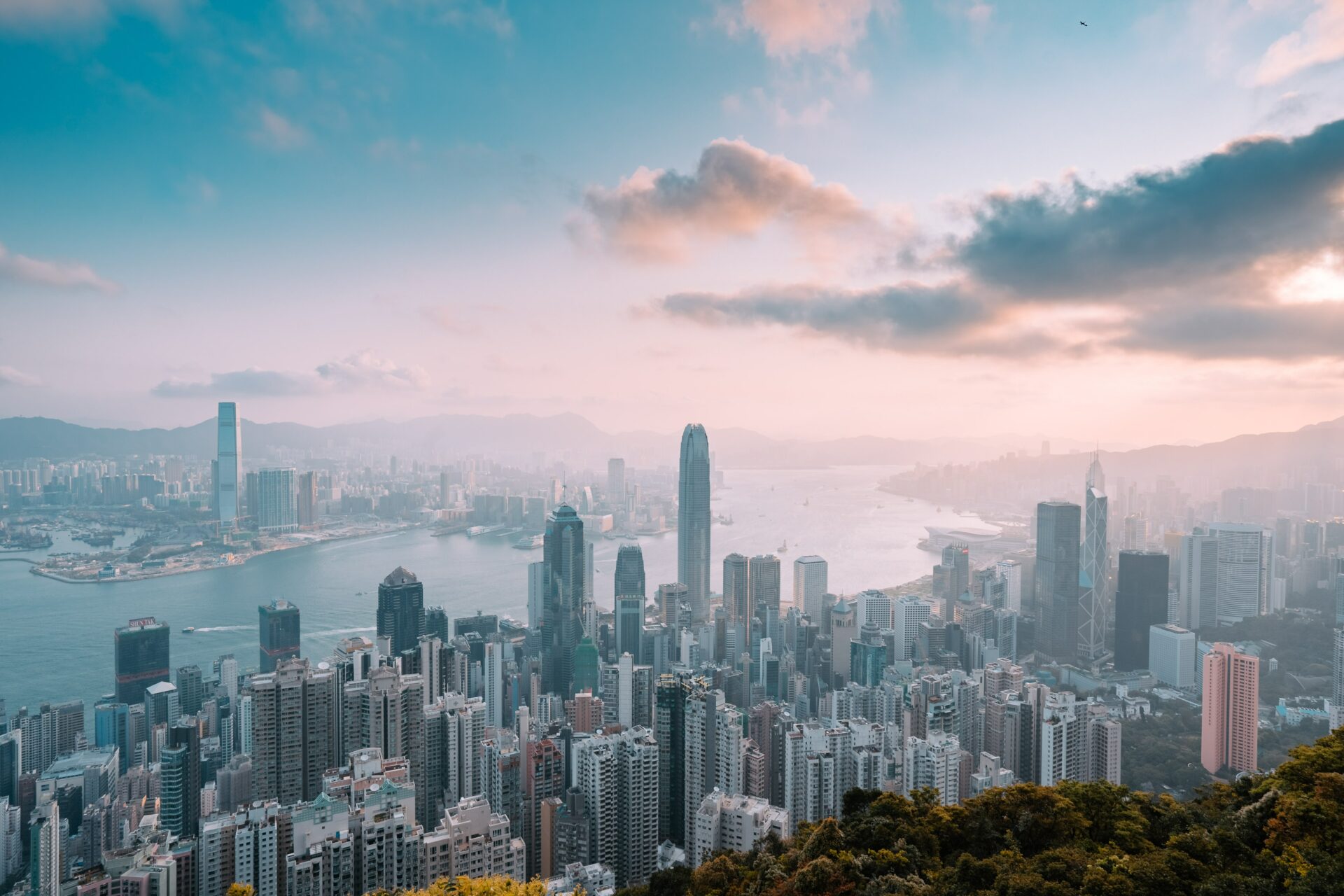
Joe Bao (MBA ’20) writes on how western businesses became caught in the latest political crossfire in Hong Kong and how being an authentic leader might end up costing you your whole business.
For many years, Milton Friedman’s “shareholder value” theory, that the first social responsibility of a company is to maximize shareholder profits, has been pervasive in the corporate world. Business executives are expected to shy away from politics and instead focus on generating profits for shareholders. However, as laid out in various HBS leadership and ethics cases, market sentiment is shifting in recent years such that an increasing number of businesses now take into account the demands of non-shareholding stakeholders and are expressing views on political, social, and ethical issues.
This poses a challenge for multinationals trying to please stakeholders across multiple jurisdictions on the same issue. Nowhere is this more obvious than Hong Kong, a former British colony which became a part of China in 1997 but retained its distinct political, socioeconomic, and legal system. Already mired in the U.S.-China trade war, many western companies operating in Hong Kong are finding it tough to appease both China and the West, and have been forced to choose sides, during the months of pro-democracy protests in 2019-2020 and following the enactment of a new national security law in June 2020 (the “National Security Law”).
Below are a few real-life cases that we may find ourselves in after we graduate from HBS. What would you do if you were the protagonist in each case?
Cathay Pacific and the Pro-Democracy Demonstrations
Cathay Pacific is Hong Kong’s flagship carrier. Its largest shareholder, Swire Pacific, is part of a global conglomerate based in Hong Kong and London. The airline was embroiled in controversy last year over the long-running pro-democracy protests in Hong Kong.
For background, the mass protests in question started as a response to the introduction of a new bill in April 2019 that would allow for criminal suspects to be extradited to mainland China under certain circumstances. Hong Kong previously did not have extradition agreements in place with mainland China, and people in Hong Kong were concerned that the bill would expose them, especially journalists and political activists, to unfair trials and treatment in mainland China. The protests quickly escalated and morphed into a broad pro-democracy and anti-government movement that became more frequent and violent over time.
Some Cathay Pacific staff visibly participated in or sympathized with the movement, including a series of largely peaceful, sit-in protests that blockaded the Hong Kong airport. Initially, Cathay Pacific chairman John Slosar stated that he “wouldn’t dream” of telling his employees “what to think about something.” When the protests escalated in the summer, Chinese state-run media and social media pressured various companies, including Cathay Pacific, to take a hardline approach against employees that took part in the protests. Some Chinese state-controlled companies asked their employees to avoid flying with Cathay.
Civil Aviation Authority of China, mainland China’s aviation regulator which is separate from the independent Civil Aviation Department of Hong Kong, called for the suspension of Cathay staff who supported or participated in the demonstrations in a directive on August 9, 2019. It warned Cathay that such staff would no longer be allowed to fly to mainland Chinese destinations or even in Chinese airspace. There were then reports that the Chinese regulator rejected some entire crew lists without explanation. These measures severely disrupted Cathay Pacific’s operations and threatened the very existence of the airline as around three quarters of Cathay flights used mainland Chinese airspace.
To address this crisis, the airline ordered its employees to stop supporting the protests and investigated social media accounts of its employees to determine which crew members could be deemed a security threat by the Chinese regulator. A trade union claimed that eight pilots and 18 flight attendants had been dismissed or resigned under pressure. Employees reported a climate of fear within the airline, fearing that they might be reported by colleagues under a whistleblower policy for expressing political viewpoints on social media. Both the chairman and the CEO of the company resigned. Under new management, Cathay Pacific and Swire Pacific have offered repeated public support for the Hong Kong government, including for the city’s clampdown on protesters and the National Security Law (see below).
HSBC, Standard Chartered, and the National Security Law
HSBC is a major U.K. financial institution with deep roots in Hong Kong and China and reliant on U.S. dollars to fund its global business. Its Hong Kong operations generated $12.1 billion of adjusted pre-tax profit in 2019 (for reference, HSBC made $13.3 billion of adjusted pre-tax profit worldwide in the same period). This has led to the bank investing heavily in China while shrinking its less profitable operations in the U.S. and Europe. Standard Chartered is another U.K. financial institution that focuses on emerging markets and, like HSBC, makes the majority of its profits in Asia. Both banks found themselves in hot water earlier in 2020 because of their responses to the National Security Law.
For background, the National Security Law is a sweeping national security law tailor-made for Hong Kong. The law criminalizes secession, subversion, terrorist activities, and collusion with a foreign country or with external elements to endanger national security. China’s parliament approved and enacted by decree, therefore bypassing Hong Kong’s legislative body, the National Security Law on June 30, 2020.
The issues covered by the National Security Law have long been controversial in Hong Kong, the only city in China where people can and do freely express their opinion and demonstrate against the Chinese government. A previous attempt by the Hong Kong government to pass its own version of the law was met with such strong local opposition that the government had to withdraw the bill and steer clear of the topic ever since.
Pro-democracy supporters have expressed concerns over the ambiguity, enforcement, and wide scope of the National Security Law. They fear losing their freedom of expression, especially in relation to criticism of the Chinese government, along with other personal rights and security. Furthermore, the law applies not only to Hong Kong residents, but also to everyone on the planet, even for offences committed outside Hong Kong by a person who is not a Hong Kong resident, though it is unclear how the law’s extraterritorial jurisdiction will work in reality.
Political leaders in the U.S., U.K., Canada, Australia, and other western nations have widely criticized the introduction of the National Security Law as undermining Hong Kong’s autonomy. The U.S. Treasury went further and placed sanctions on 11 Chinese and Hong Kong officials involved in the legislation or enforcement of the National Security Law.
In contrast, Chinese government said that the law would provide strong support for Hong Kong “to turn from chaos to stability and restart,” especially following months of major anti-government protests as described above. It also stated that the new law was intended to plug a national security gap and would affect only “an extremely small number” of people.
During the legislation process, HSBC was criticized by a high-profile senior Chinese politician for its silence on the National Security Law. He went on to state that HSBC’s business in China could be replaced overnight by banks from China or other countries. A few days later, HSBC posted on its WeChat account a photo of its Asia-Pacific CEO Peter Wong signing a petition in support of the law. Standard Chartered released a statement around the same time also in support of the National Security Law. The two banks joined a growing list of top businesses in Hong Kong that had expressed support for the contentious legislation.
The stance of HSBC and Standard Chartered provoked backlash from some institutional investors. Aviva Investors, a top 20 shareholder in both HSBC and Standard Chartered, responded that it felt “uneasy” with the two banks’ public support for the National Security Law. It further warned both banks that it expected they would speak out publicly if there were any future abuses of democratic freedoms connected to the law. Another asset manager that held large stakes in both banks acknowledged the difficulties the banks faced in keeping the Chinese and U.S. governments happy, but “if this really blows up, we will have to think whether we want to be involved.” The British political establishment also joined in the attack. One member of parliament questioned the banks how their choice “to back an authoritarian state’s repression of liberties and undermining of the rule of law…fits in their definition of corporate social responsibility”.
NBA and the Pro-democracy Demonstrations
Daryl Morey, the General Manager of the Houston Rockets and an MBA graduate from MIT Sloan, tweeted on October 4, 2019 “Fight for Hong Kong. Stand with Hong Kong.” in solidarity with the anti-government protest in Hong Kong. This tweet sparked a harsh backlash in China, a huge market for the NBA that boasts around 800 million viewers for the 2018-2019 season. Tencent, which struck a five-year deal in July 2019 to stream NBA games for $1.5 billion, and the state TV broadcaster initially announced that they would stop broadcasting Rockets games. They subsequently went further and stopped showing all NBA pre-season games. All of the NBA’s official Chinese partners also halted business with the league.
In response to Morey’s tweet, Houston Rockets’ owner, Tilman Fertitta, and the NBA quickly sought to distance themselves from Morey’s now-deleted tweet. Morey also apologized for his tweet two days later. Facing mounting pressure in the U.S., the NBA commissioner Adam Silver then stated the NBA would not regulate or censor what players and team owners say or would not say.
Lessons for Us
In an HBS case discussion, we have plenty of options we can choose from, and there is no right or wrong answer. However, if you were the chairman or CEO and found yourself in the situation as described above, what choices would you make? Indeed, when the very existence of the business is at stake, the better question may be: do you even have a choice?
In a world where businesses are expected to take care of stakeholders rather than shareholders, executives of multinational businesses may find themselves in an increasingly uncomfortable position of having to please different stakeholders wanting different things. What if taking care of your employees means risking the future of your business? What if creating value for communities in one country angers your customers in another country?
The cases outlined in this article represent only some of the risks and complications that companies face when they tried to balance the interests of various stakeholders. There are many more similar questions that we may need to grapple with as future business leaders. These complications are manifestly greater when a business operates in a market that has a vastly different political system and societal expectation than the one in its home country.
 Joe Bao (MBA ’20) is originally from Hong Kong and spent over half of his life living in Europe and North America. He studied political science as an undergraduate at University of Chicago. Prior to HBS, he went to law school and worked in “Big Law” in London. Apparently, he misses HBS so much that he feels the need to pen an article for the Harbus after graduating in May.
Joe Bao (MBA ’20) is originally from Hong Kong and spent over half of his life living in Europe and North America. He studied political science as an undergraduate at University of Chicago. Prior to HBS, he went to law school and worked in “Big Law” in London. Apparently, he misses HBS so much that he feels the need to pen an article for the Harbus after graduating in May.


